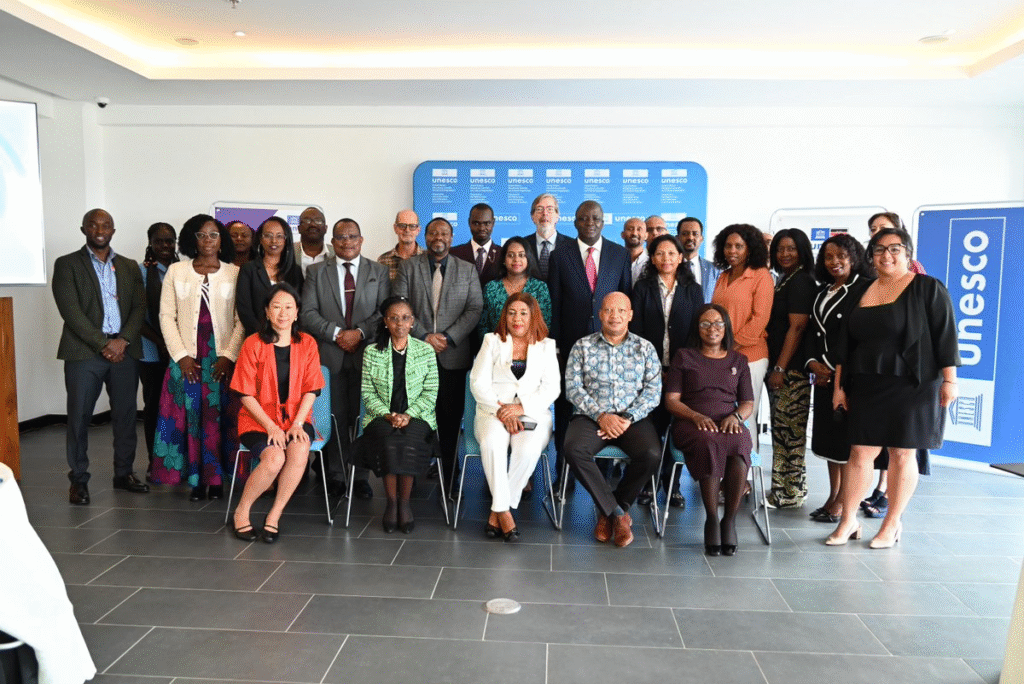African Finance Ministers Conference Highlights Urgent Need for Private Sector Climate Financing in Kampala

At a meeting of African finance ministers in Kampala, the African Development Bank stressed the urgent need for increased private sector participation in climate finance.
At a crucial meeting of African finance ministers held in Kampala on 3rd August 2024, the African Development Bank emphasized the urgent necessity for increased private sector participation in climate finance.
During the “Sustainable Horizons: Climate Action Strategies for Ministries of Finance in Sub-Saharan Africa” conference, organized by the Coalition of Finance Ministers for Climate Action (CFMCA), Prof. Anthony Nyong, the Bank’s Director for Climate Change and Green Growth Department, highlighted that the private sector funded less than 3 percent of adaptation activities in Africa between 2019 and 2022.
“We need to mobilise $213.4 billion annually from the private sector to close Africa’s climate financing gap by 2030,” stated Prof. Nyong. He pointed to perceived high investment risks and poor credit ratings as significant obstacles to private sector involvement.
Nyong was part of a panel titled Unique Opportunities and Challenges for African Ministers of Finance, moderated by Uganda’s Minister of State Planning, Amos Lugoloobi. The panel also included Bock Kalokh, Minister of Finance, Sierra Leone; and Joseph Ng’ang’a, CEO of the Africa Climate Summit and interim CEO at the Global Energy Alliance for People and Planet.
Minister Kalokh highlighted the urgent need for increased financial resources to implement mitigation and adaptation strategies by 2030. He emphasized the importance of strategic investments for building resilient economies, noting that a quarter of greenhouse gas emissions come from the agriculture sector.
“Do we need further evidence before action? Do we wait to be on life support before we act? It is time to act, and we need to act now,” Kalokh asserted. He urged ministries of finance to prioritize funding for climate action and disaster mitigation, citing the worsening climate crisis and the complex climate finance landscape as significant challenges.
Ng’ang’a discussed Africa’s crucial role in the global climate narrative, stressing the continent’s potential to provide solutions rather than just being a victim of climate change. “We have resources; if we accessed global financing, we could deliver solutions on climate,” he stated. He encouraged the audience to view climate action as an opportunity for economic development, job creation, and mitigating climate impacts within Africa.
Prof. Nyong mentioned the African Development Bank’s initiative, the African Financial Alliance on Climate Change (AFAC), which aims to accelerate capital allocation for Africa’s climate resilience.
The event concluded with a collective emphasis on the need for immediate and strategic action to address climate change in Sub-Saharan Africa. The insights provided a clear call to action for ministries of finance to prioritize and fund climate resilience initiatives, with the Bank Group positioning itself as a key facilitator in mobilizing necessary resources and engaging the private sector.
The event was supported by Enabel, NDC Partnership, UNEP, UNDP, Coalition for Capacity on Climate Action (C3A), and the World Bank.







